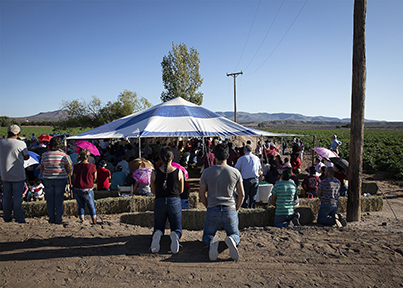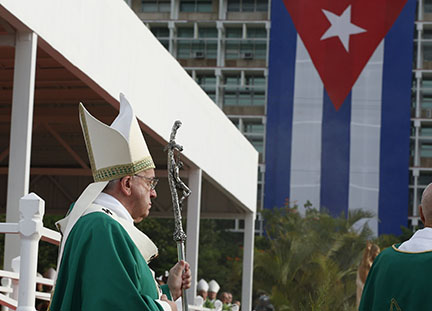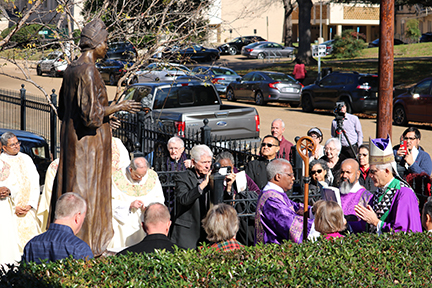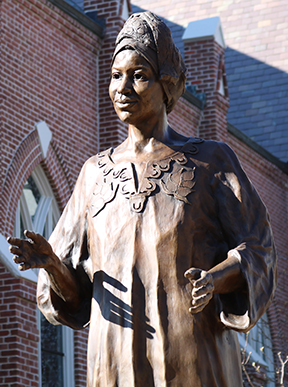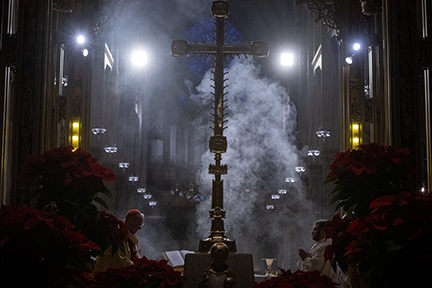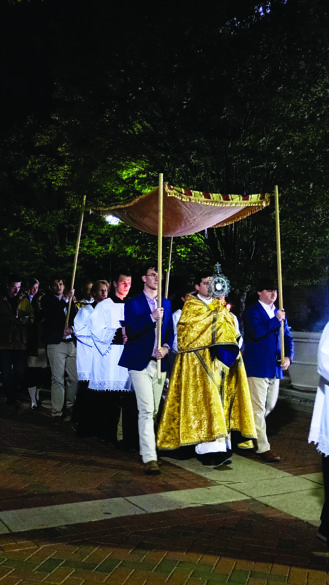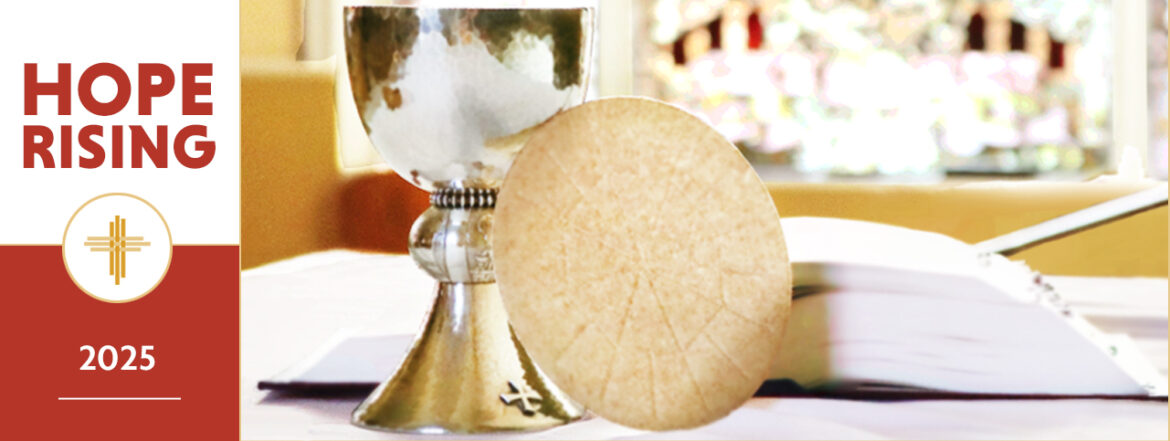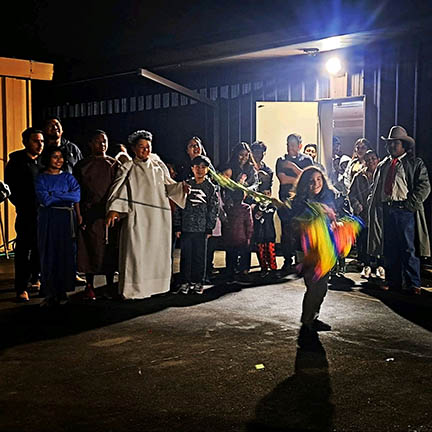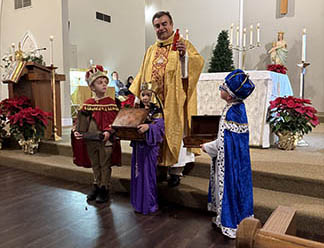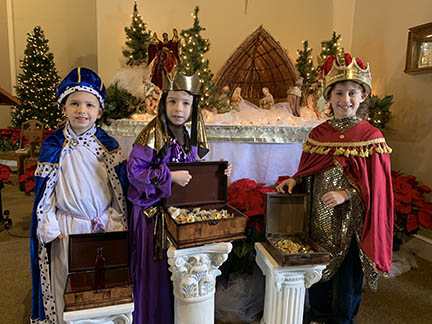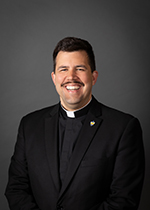Por Ann Rodgers
LOS ÁNGELES (OSV News) – Cuatro días después de que la iglesia del Corpus Christi fuera incinerada en el incendio de Palisades, el capitán Bryan Nassour, del cuerpo de bomberos de Los Ángeles, se abrió paso entre una capa de escombros de dos metros en del santuario de la iglesia y recuperó el tabernáculo.
“Lo hice porque toda la comunidad ha quedado diezmada: parece que ha estallado una bomba nuclear y no queda nada en pie”, explicó Nassour en una entrevista con Angelus, el medio de noticias de la Arquidiócesis de Los Ángeles. Nassour es miembro de la iglesia de San Francisco de Sales de Sherman Oaks, cuyo hermano pertenece al Corpus Christi.
“Mi hermano perdió su casa. Tengo amigos íntimos que lo han perdido todo menos la camisa, y también pertenecen a esa iglesia. Así que, si pudiera salvar sólo una cosa, que sea esto, para que tengan algo en lo que creer”, dijo.
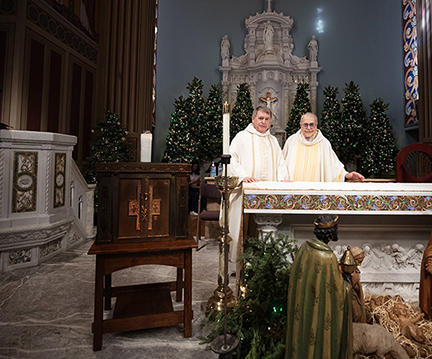
Ese sábado por la mañana, Nassour, cuya estación en Pacific Palisades está enfrente de Corpus Christi, había estado despierto toda la noche luchando contra otros incendios. Mientras tomaba café en su escritorio y contemplaba la iglesia en ruinas, decidió comprobar si había objetos de valor. Quería protegerlos de los saqueadores y quizá devolver algo significativo a la parroquia.
Ladrillos chamuscados, tejas y montones de escombros llenaban la nave hasta tal punto que tuvo que arrastrarse por debajo de los marcos de las puertas que ya no tenían puerta. El tejado se había derrumbado y un armazón de acero quemado se tambaleaba sobre los restos retorcidos de una lámpara de araña. Los bancos se habían consumido. Sólo quedaba el altar de granito, con el tabernáculo de latón macizo encima y una cruz. El Santísimo Sacramento estaba intacto.
Nassour se sorprendió al ver que el tabernáculo pesaba más de 150 kilos. Su equipo le ayudó a meterlo en la estación.
“Fue una de las cosas más edificantes”, dijo. “No todo el mundo es religioso, pero lo vieron y pensaron: ‘Esto es increíble’. Estamos haciendo algo – al menos una cosa – que podemos salvar para la comunidad”.
Hizo muchas llamadas antes de poder ponerse en contacto con monseñor Liam Kidney, de Corpus Christi, para decirle que el sagrario estaba a salvo y sin daños.
“Estaba totalmente incrédulo”, dice Nassour.
Nassour se ofreció a buscar otros objetos sagrados y el sacerdote le dijo dónde encontrar los cálices y las patenas. Los cálices y las patenas habían sufrido graves daños. Pero los bomberos recuperaron otros objetos sagrados, incluidos tres recipientes intactos de óleo santo.
El latón resiste el calor, pero Nassour sospecha que el tabernáculo sobrevivió gracias a algo más.
“Hable con cualquier bombero. En cualquier edificio religioso, lo que suele sobrevivir es la cruz y ciertos objetos muy religiosos, a menos que se les prenda fuego”, explicó.
Gabe Sánchez, un agente especial retirado del FBI que realiza investigaciones para la arquidiócesis, fue enviado a recuperar el tabernáculo. Lo llevó a la iglesia de Santa Mónica, donde monseñor Kidney celebró una Misa para los sobrevivientes al día siguiente.
En esa Misa, el tabernáculo estaba sobre una mesa junto al altar. Mons. Kidney contó que Nassour le llamó para preguntarle: “He encontrado esta gran caja de oro. ¿Qué quieres que haga con ella?”
Los feligreses de la parroquia del Corpus Christi estallaron en aplausos.
(Ann Rodgers escribe para Angelus, el medio de noticias de la Arquidiócesis de Los Ángeles.)


